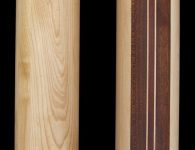

Audi introduced two completely different cars during the 2019 Frankfurt Auto Show. Its go-fast Audi Sport division presented the second-generation RS 7, a 600-horsepower fastback powered by a sonorous V8 engine. The company also unveiled a highly futuristic design study named AI:Trail (pictured) that’s fully electric, partially autonomous, and designed to be shared. Tying these two ends of the automotive spectrum together sounds impossible, but Audi is up to the challenge.
“Being able to play this bandwidth is the strength of Audi,” board member Hildegard Wortmann said during a media roundtable Digital Trends attended on the sidelines of the show.
The RS 7 represents Audi in 2019, while the AI:Trail shows how the German carmaker envisions the future as it prepares for the 2020s. It looks like it should join an expedition sent to explore Jupiter, and the three AI-badged design studies that preceded it are equally futuristic, but Audi design boss Marc Lichte told Digital Trends that they’re not as far-fetched as they initially appear.
“Many of the details on these four cars you will see in production cars. I can promise you this. They’re about 10 years ahead,” he revealed with a smile during the roundtable. He singled out the low beltline as a feature he’d like to bring to showrooms and surprised us by revealing his team is working to make it a reality by 2024.
The AI-badged concepts were each developed with a single-use case in mind, so they serve a very specific mission. The AI:Trail was designed exclusively for off-roading. This trait helps them stand out from the cars Audi currently sells. “When you design an A4 or an A5, you have to combine many characteristics into one product. These cars are designed without compromise,” said Lichte. This approach to vehicle design paves the way for car-sharing programs.
One day, Audi (or a partner) could operate a fleet of AI concept-inspired vehicles motorists will be able to book as-needed, likely via a smartphone app. You could reserve an AI:Me to commute in for a week and request an AI:Trail to spend a weekend camping as far away from your office as possible. Each car would recognize you, and immediately know how you prefer to sit, what you like to listen to, and the temperature you’re most comfortable traveling in. Doing this in 2019 would require commuting in a Jeep Wrangler, off-roading an Audi A3, or owning two cars.
Ok, but what about the immediate future?

Audi has plenty of other ideas it plans to turn into production models in the coming years.
Lichte pointed to “a very advanced future production car” currently being developed in the United States, though he stopped short of providing us with additional details. The electric E-Tron crossover will get a swoopier sibling named Sportback during the 2019 Los Angeles Auto Show, and the firm’s catalog will grow with a smaller electric crossover inspired by the Q4 E-Tron concept in 2020. That’s also when Audi Sport will release the production version of the stunning E-Tron GT concept presented to the public in 201, and when we expect to see the next-generation A3. There are upcoming models — most of them electrified — that the company hasn’t spoken about yet, too. Imagine how busy its R&D center in Ingolstadt is these days. There has never been such a broad product offensive in the company’s decades-long history.
On the surface, it sounds like Audi’s portfolio will balloon to shocking dimensions during the 2020s. While its range will indeed expand, Wortmann hinted not all of the cars the firm currently sells will be replaced.
“Audi has created a lot of legends,” she pointed out, naming Quattro and Allroad as examples. “With the transformation we’re seeing in the industry, we have to think about what the legends of the future will be.” She explained taking a past legend into the future requires intelligence and creativity, not to mention engineering prowess, but it’s something Audi’s vehicle development team must do in order to future-proof the company. “It doesn’t work to say there’s always a car, and there’s a successor to it, when the world is changing around you,” Wortmann concluded.
Will the R8 live on? It’s difficult to say for sure. Wortmann stressed a decision hasn’t been made yet. The same goes for the TT; time will tell whether the nameplate will return after the third-generation model retires. If neither car comes back, rest assured the spot they currently occupy in the company’s range won’t remain empty for very long. “There will always be sports cars,” Lichte assured us.
- Superwagons, EVs, and autonomous 4x4s wowed us at the Frankfurt Auto Show
- The Audi AI:Trail Quattro concept is the autonomous off-roading EV of our dreams
- Porsche finally reveals the Taycan, its first production electric car
read more at https://www.digitaltrends.com by Ronan Glon
Tech









